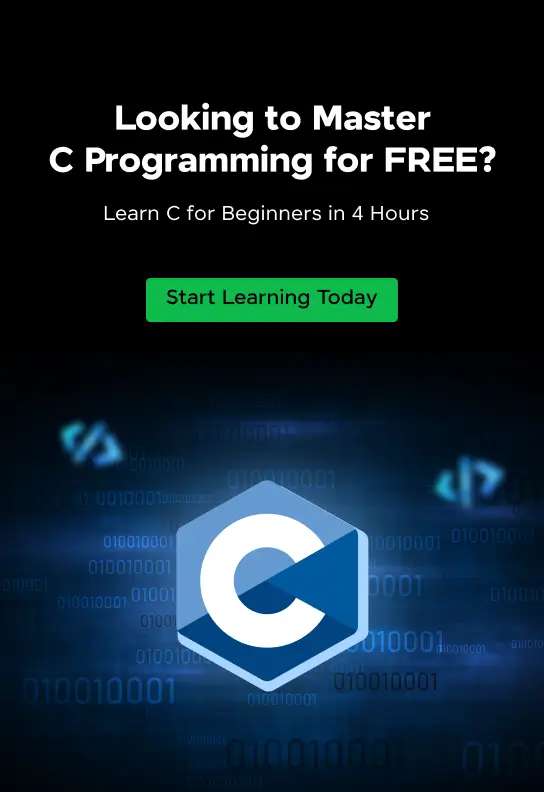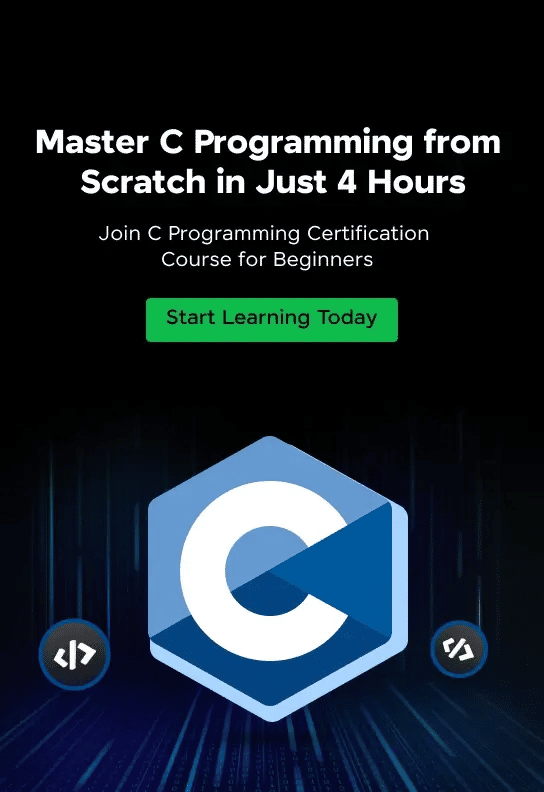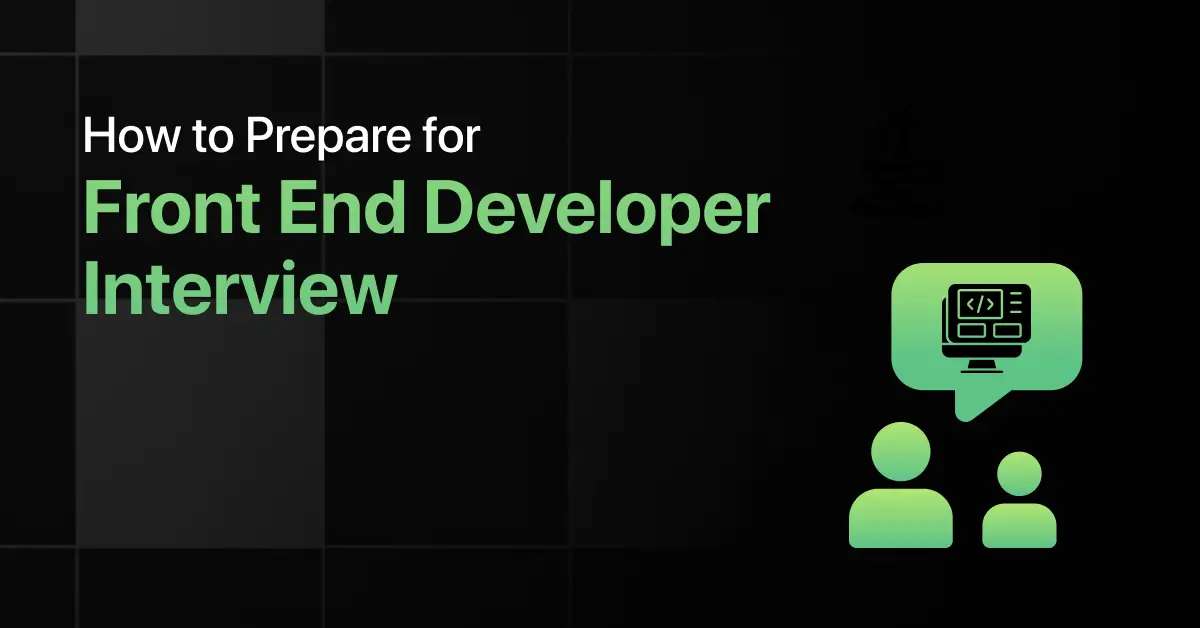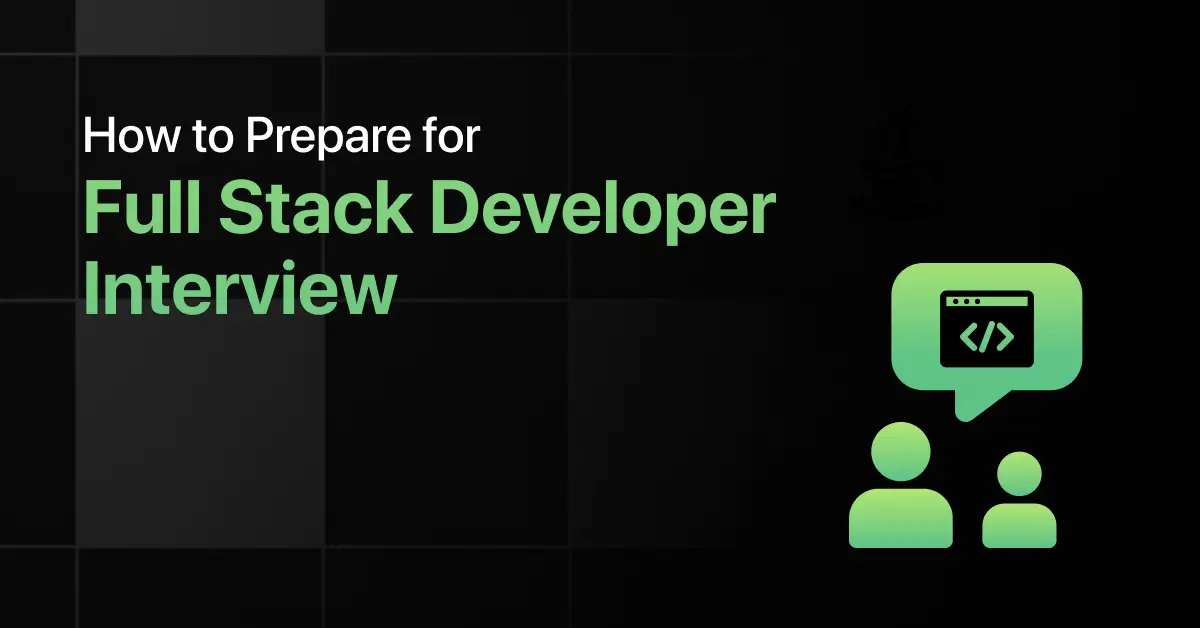Best C Programming Frameworks You Should Know
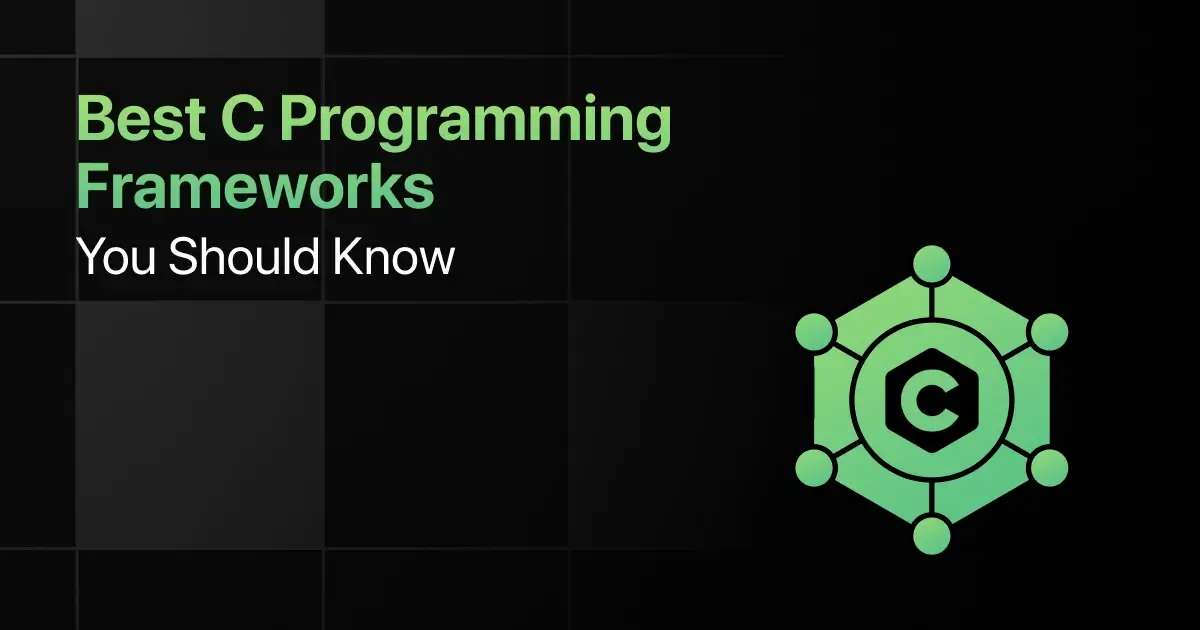
C programming frameworks are essential tools for developers. They provide a structured foundation to build robust and performance-critical applications.
This blog will explore a C programming framework list and highlight the unique features of the best C programming frameworks and libraries.
If you’re looking for C programming frameworks for beginners or aiming to conduct a C programming frameworks comparison, this guide has you covered.
Top C Programming Frameworks – Overview
Here’s an overview of the top 8 frameworks for C programming:
| S.No. | Framework Name | Key Features | Ease of Integration | Download Link |
|---|---|---|---|---|
| 1 | GTK | Comprehensive Widget Set, Cross-Platform Support | Medium | Download |
| 2 | Qt | Cross-Platform Support, Integrated Development Environment | Medium | Download |
| 3 | CMocka | Lightweight, Mocking Support | Easy | Download |
| 4 | libevent | Event-Driven Architecture, Asynchronous I/O Support | Medium | Download |
| 5 | APR (Apache Portable Runtime) | Cross-Platform Portability, Threading and Memory Management | Medium | Download |
| 6 | GLib | Data Structures and Utilities, Event Loop and Threading Support | Medium | Download |
| 7 | libuv | Asynchronous I/O, Event Loop Support | Medium | Download |
| 8 | ncurses | Terminal-Independent Interface, Window and Screen Management | Medium | Download |
Most Popular C Programming Frameworks You Should Know
Below are the popular C programming frameworks you should know:
1. GTK
GTK is an open-source toolkit for creating graphical user interfaces, primarily used in Linux environments.
It is known for its flexibility and ease of use in developing desktop applications.
Popularity:
- Widely used in Linux desktop environments.
- Strong community support.
- Popular for GNOME-based applications.
Key Features:
- Comprehensive widget set
- Cross-platform support
- Themable user interface
Learning Curve: Medium
Performance: Good performance with extensive features
Compatibility:
- Compatible with Linux, Windows, and macOS.
- Integrates well with GNOME desktop environments.
Ease of Integration: Medium
Use Cases and Industry Adoption:
- Linux desktop applications
- Cross-platform GUI development
- GNOME applications
Job Market Demand:
- High demand in Linux and open-source development.
- Used by developers in GNOME and desktop application projects.
2. Qt
Qt is a powerful, cross-platform application framework used for developing applications with a native look and feel.
It supports a wide range of platforms, including desktop, mobile, and embedded systems.
Popularity:
- Popular for cross-platform development.
- Strong commercial and community support.
- Widely used in commercial and open-source projects.
Key Features:
- Cross-platform support
- Integrated development environment (Qt Creator)
- High-performance graphics
Learning Curve: Medium
Performance: High performance with optimized graphics rendering
Compatibility:
- Compatible with Windows, macOS, Linux, and embedded systems.
- Supports integration with various third-party libraries.
Ease of Integration: Medium
Use Cases and Industry Adoption:
- Cross-platform applications
- Mobile and embedded systems
- High-performance desktop applications
Job Market Demand:
- High demand in cross-platform development.
- Used by tech companies and embedded systems developers.
3. CMocka
CMocka is a lightweight unit testing framework for C, designed to be easy to use and portable across different platforms.
It provides a simple API for writing tests and supports mocking.
Popularity:
- Popular in the C programming community.
- Widely used for testing C codebases.
- Strong community support.
Key Features:
- Lightweight and portable
- Mocking support
- Simple API
Learning Curve: Easy
Performance: High performance with minimal overhead
Compatibility:
- Compatible with various operating systems.
- Integrates with CI/CD pipelines.
Ease of Integration: Easy
Use Cases and Industry Adoption:
- Unit testing for C codebases
- Embedded systems testing
- Test-driven development
Job Market Demand:
- High demand in C and embedded systems testing.
- Used by developers focused on quality assurance and testing.
4. libevent
libevent is an event notification library that provides a mechanism to execute a callback function when a specific event occurs on a file descriptor.
It is widely used in network programming and for building event-driven applications.
Popularity:
- Popular in network programming.
- Strong community support.
- Widely adopted in performance-critical applications.
Key Features:
- Event-driven architecture
- Cross-platform support
- Asynchronous I/O support
Learning Curve: Medium
Performance: High performance with low latency
Compatibility:
- Compatible with Unix-like systems and Windows.
- Integrates with various network libraries.
Ease of Integration: Medium
Use Cases and Industry Adoption:
- Network servers and services
- Event-driven programming
- High-performance I/O applications
Job Market Demand:
- High demand in network programming and server-side development.
- Used by companies building high-performance network services.
5. APR (Apache Portable Runtime)
The Apache Portable Runtime (APR) is a library that provides a set of APIs designed to allow programs to run on different operating systems without modification.
It is used in the Apache HTTP Server and other projects.
Popularity:
- Widely used in Apache projects.
- Strong community and enterprise support.
- Popular for cross-platform development.
Key Features:
- Cross-platform portability
- Threading and memory management
- Network and file I/O
Learning Curve: Medium
Performance: Good performance with portability across platforms
Compatibility:
- Compatible with Windows, macOS, Linux, and Unix-like systems.
- Integrates with Apache projects and other C libraries.
Ease of Integration: Medium
Use Cases and Industry Adoption:
- Web servers and network services
- Cross-platform application development
- Apache HTTP Server and related projects
Job Market Demand:
- High demand in web server and network programming.
- Used by developers working on Apache projects and cross-platform applications.
6. GLib
GLib is a low-level core library that forms the basis for projects such as GTK and GNOME.
It provides data structures, utilities, and interfaces for event loops, threads, and object systems.
Popularity:
- Widely used in GNOME and GTK projects.
- Strong community support.
- Popular in Linux desktop development.
Key Features:
- Data structures and utilities
- Event loop and threading support
- Object system (GObject)
Learning Curve: Medium
Performance: High performance with efficient memory management
Compatibility:
- Compatible with Unix-like systems and Windows.
- Integrates with GTK and GNOME projects.
Ease of Integration: Medium
Use Cases and Industry Adoption:
- GNOME and GTK applications
- Linux desktop environments
- Cross-platform utilities
Job Market Demand:
- High demand in GNOME and Linux development.
- Used by developers building desktop applications and utilities.
7. libuv
libuv is a multi-platform support library with a focus on asynchronous I/O.
It is primarily used by Node.js but is also useful in C programming for handling asynchronous tasks and event-driven programming.
Popularity:
- Popular in the Node.js ecosystem.
- Strong community support.
- Widely used in event-driven and asynchronous programming.
Key Features:
- Asynchronous I/O
- Event loop support
- Cross-platform compatibility
Learning Curve: Medium
Performance: High performance with low-latency I/O operations
Compatibility:
- Compatible with Unix-like systems and Windows.
- Integrates with Node.js and other event-driven applications.
Ease of Integration: Medium
Use Cases and Industry Adoption:
- Event-driven applications
- Asynchronous I/O operations
- Real-time services
Job Market Demand:
- High demand in event-driven programming and real-time applications.
- Used by developers working with Node.js and C/C++ projects.
8. ncurses
ncurses is a programming library that provides an API for building text-based user interfaces in a terminal-independent manner.
It is widely used for creating console applications and tools that require a user interface.
Popularity:
- Popular in Unix-like systems.
- Strong community support.
- Widely adopted for terminal-based applications.
Key Features:
- Terminal-independent interface
- Window and screen management
- Keyboard and mouse input handling
Learning Curve: Medium
Performance: Good performance with low overhead
Compatibility:
- Compatible with Unix-like systems and Windows.
- Works in various terminal environments.
Ease of Integration: Medium
Use Cases and Industry Adoption:
- Text-based user interfaces
- Console applications
- System administration tools
Job Market Demand:
- High demand in system administration and console application development.
- Used by developers building terminal-based interfaces.
Final Words
For beginners, starting with the recommended C programming frameworks in this blog can ease the learning curve.
Mastering the top 10 C programming frameworks will equip you with the knowledge and tools to build robust and performance-critical applications in C.
Explore More C Programming Resources
- C Programming Learning Websites
- C Programming Practice Websites
- C Programming YouTube Channels
- C Programming Project Ideas
- C Programming Interview Questions
- C Programming IDEs
- C vs C++
- C Programming Apps
- C Programming MCQ
Explore More Frameworks
- Java
- Python
- JavaScript
- HTML
- CSS
- Web Development
- Mobile App Development
- Automation Testing
- PHP
- Machine Learning
- Unit Testing
- Big Data
- Ruby
- Data Science
- DevOps
- Blockchain
- Golang
FAQs
The best C programming frameworks to use are:
- GTK
- Qt
- CMocka
- libevent
- APR (Apache Portable Runtime)
Key features to look for include performance, portability, ease of integration, and comprehensive documentation.
GTK and CMocka are the easiest C programming frameworks to learn for beginners.
Common use cases include GUI development (GTK, Qt), network programming (libevent), unit testing (CMocka), and cross-platform application development (APR).
Some lightweight C programming frameworks for rapid application development are CMocka, libevent, and APR.
Top companies use frameworks like Qt and GTK for building desktop applications, and libevent for high-performance networked services.
The demand for skills related to C programming frameworks is strong, particularly in embedded systems, network programming, and system-level development.
Related Posts
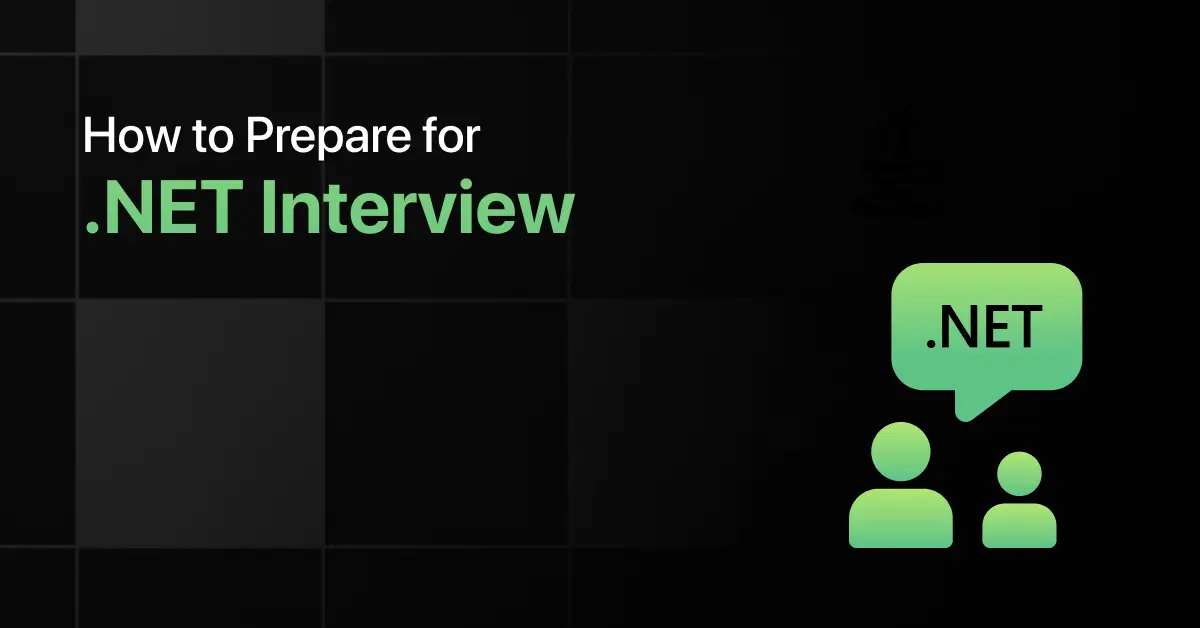

How to Prepare for .Net Interview
Are you preparing for a .NET interview but not sure which topics to prioritize? Many candidates struggle to balance C# fundamentals, …
Warning: Undefined variable $post_id in /var/www/wordpress/wp-content/themes/placementpreparation/template-parts/popup-zenlite.php on line 1050

